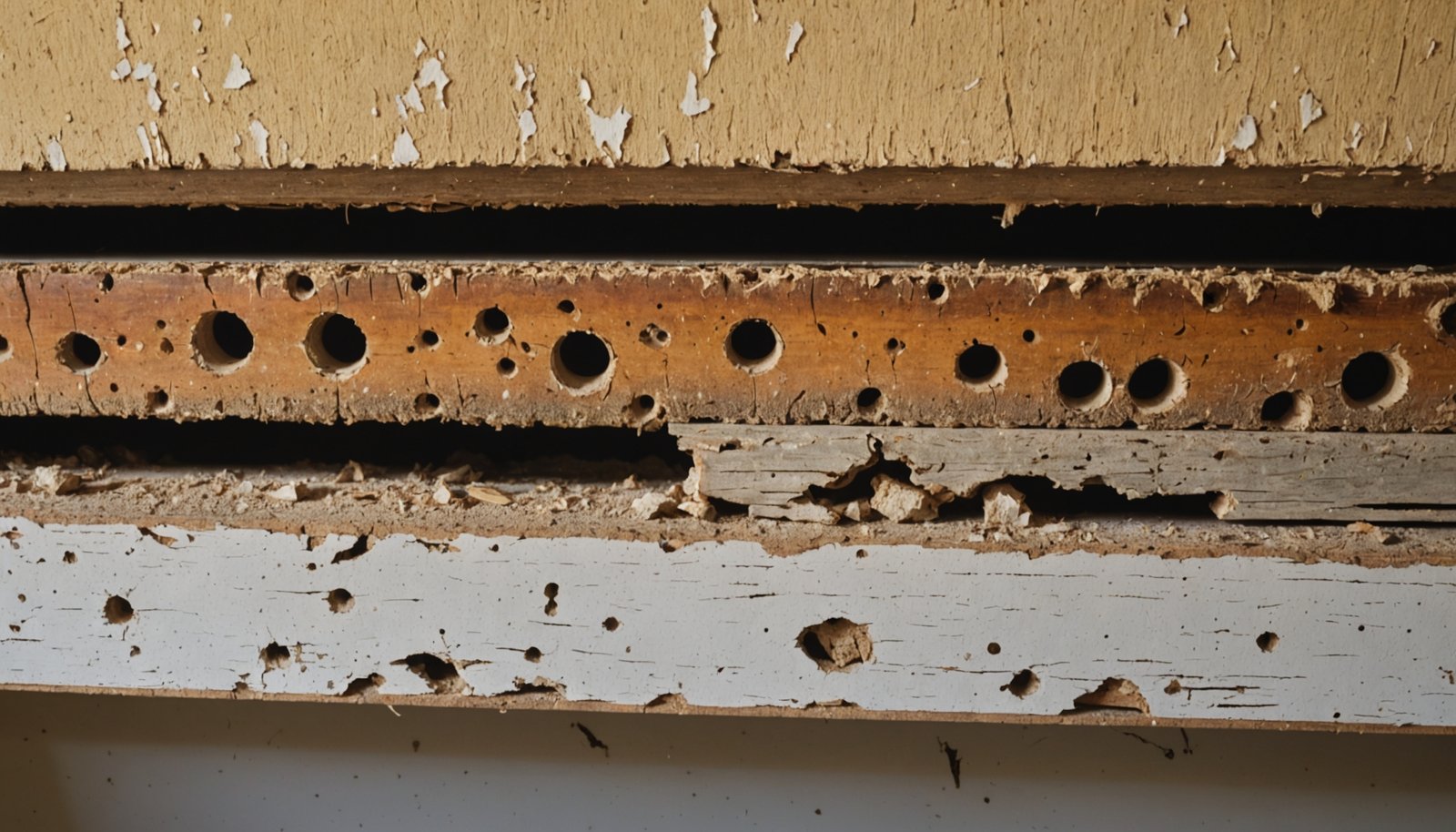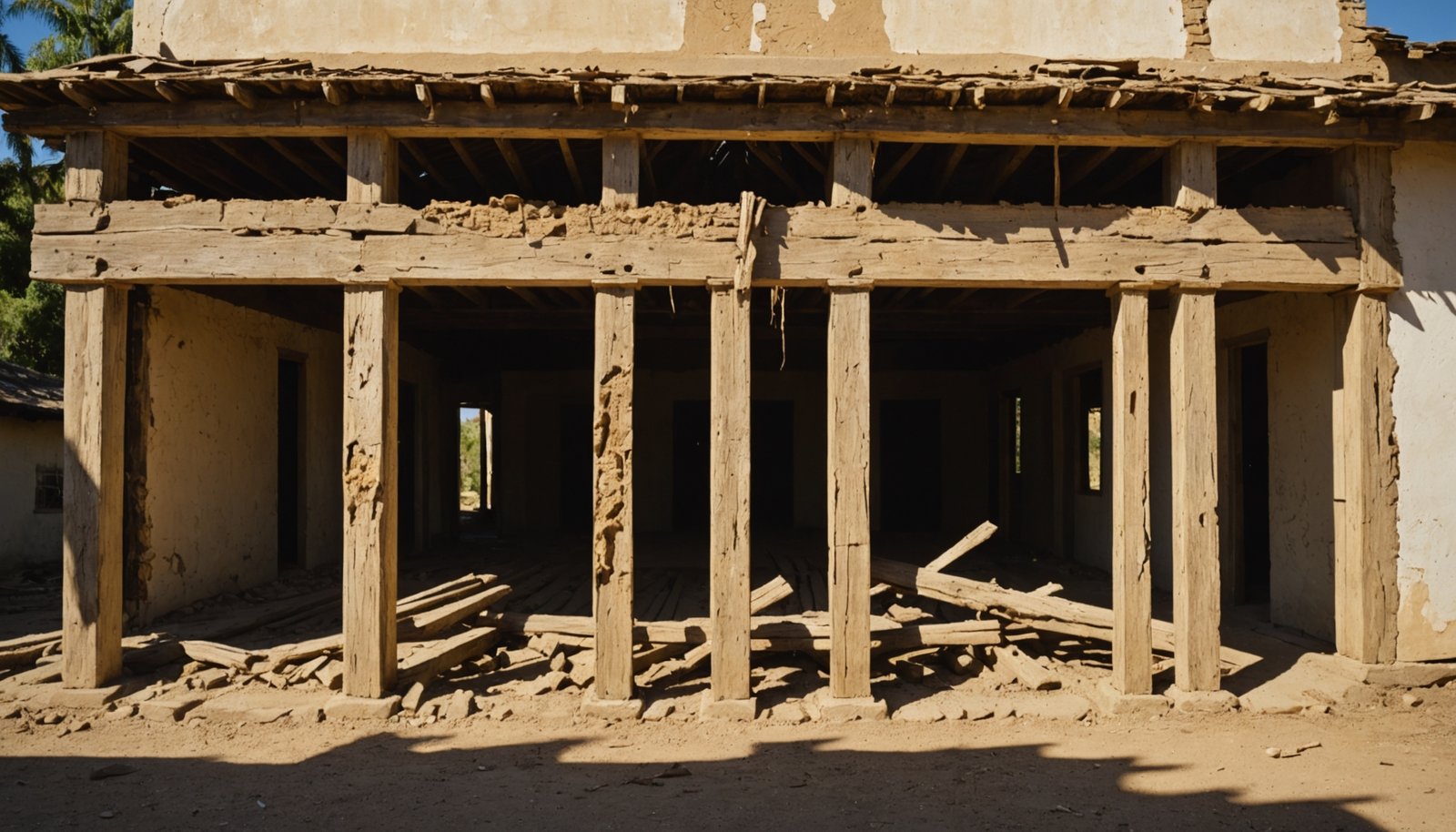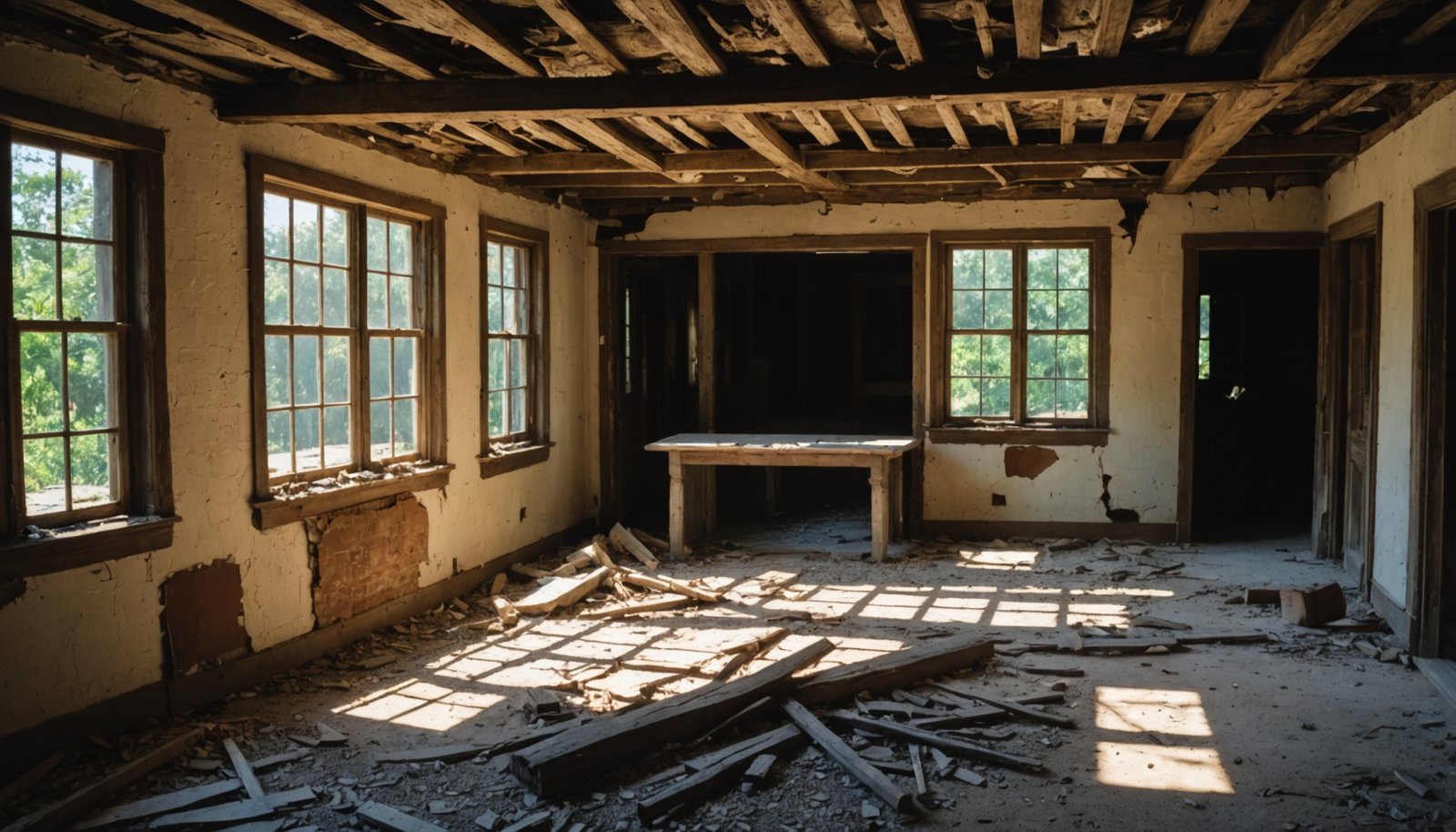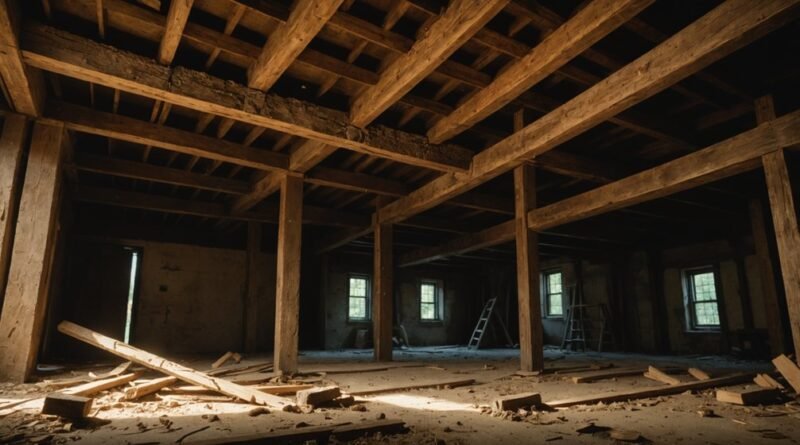Termite Damage and Home Value: How Infestations Affect Property Appraisals
Termite damage can devastate your home’s value, potentially reducing it by up to 25%. You’ll face multiple financial hurdles beyond just repair costs, including higher insurance premiums, mandatory inspections, and decreased buyer interest. A documented termite history will greatly impact your property’s appraisal value and marketability. While proper treatment and repairs can help recover value, you’ll need extensive documentation and professional evaluations to restore your home’s worth. Understanding the full scope of these impacts will help you protect your investment.
Key Takeaways
- Termite infestations can decrease home value by 20-25%, significantly impacting property appraisals and potential buyer offers.
- Clean Wood Destroying Insect reports and documented successful treatments help maintain property values and reassure potential buyers.
- Annual termite inspections cost $300-$800, representing a small investment compared to repair costs ranging from $2,000-$25,000.
- Property appraisers consider termite history during valuation, making disclosure and documentation of treatments crucial for accurate assessments.
- Structural repairs, rather than cosmetic fixes, are essential for restoring property value after termite damage.
The True Cost of Termite Infestations on Property Values

When termites invade your home, they don’t just eat away at the wood – they also consume your property’s value.
Silent and relentless, termites are nature’s saboteurs, destroying not only your home’s structure but also its financial foundation.
You can expect your home’s worth to drop by up to 20% due to structural damage from these destructive pests, making it considerably harder to sell at a desirable price.
Even if you’ve treated the infestation, potential buyers may still offer less for your property simply because of its termite history.
In regions where termites are common, you’ll notice reduced demand and lower market prices overall. With over 600,000 homes affected by termite damage annually in the United States, this widespread issue continues to impact real estate markets significantly.
While some buyers in hot real estate markets might overlook termite issues in prime locations, most will see it as a major red flag.
If you’re planning to sell, you’ll need to address any termite problems quickly to protect your investment and maintain your home’s marketability.
Hidden Financial Impacts Beyond Structural Damage

The financial toll of termite damage extends far beyond visible structural repairs.
You’ll face increased inspection requirements during sales or refinancing, with more frequent and detailed examinations adding to your transaction costs. Your insurance premiums may rise, and some providers might even limit or exclude termite-related coverage.
When selling your home, you’ll likely encounter buyer resistance and reduced offers due to the property’s termite history. Studies show infested properties typically see a 20% value decrease.
You’ll need to provide extensive documentation of treatments and repairs, while mortgage lenders may impose stricter terms or require additional clearances.
Don’t forget about hidden expenses like permit fees, contractor supervision, and potential temporary relocation costs during repairs.
If you’re a landlord, you might also lose rental income while the property undergoes treatment and reconstruction.
Understanding Property Appraisals With Termite History

Since property appraisals greatly impact your home’s market value, understanding how termite history affects these assessments is essential for protecting your investment.
If you’ve dealt with termite issues, you’ll need to disclose this history, as it can reduce your appraisal by 20-25% compared to similar homes without infestation records.
You can minimize negative impacts by obtaining a Wood Destroying Insect (WDI) report, which lenders typically require. A clean WDI report or documented successful treatment helps maintain value and reassures buyers.
Consider getting a pre-listing inspection to identify and address any issues before appraisal. Having thorough documentation of treatments, repairs, and ongoing protection programs can greatly improve your appraisal outcome. Experienced specialists conduct detailed evaluations that provide comprehensive reports on termite presence and structural damage.
In high-demand markets where termites are common, properly addressed infestations may have minimal impact on value.
Prevention Strategies to Protect Home Equity
Protecting your home’s equity from termite damage requires implementing extensive prevention strategies that combine regular inspections, physical barriers, and proper maintenance.
Schedule annual professional inspections to catch early signs of infestation, as undetected termites can cause extensive structural damage exceeding $10,000 in repairs. Prevention costs averaging $300-$800 annually represent a fraction of potential repair expenses.
Early detection through yearly professional inspections helps prevent catastrophic termite damage that can devastate your home’s structural integrity and value.
Install termite shields and mesh barriers during construction, while using termite-resistant materials like pressure-treated wood and composite materials in vulnerable areas.
Create chemical barriers through soil treatments and borate applications, with retreatment every 5-10 years for ideal protection.
Control moisture by maintaining proper drainage, keeping gutters clean, trimming vegetation away from the house, and ensuring crawl spaces are well-ventilated.
These prevention methods work together to safeguard your property value while providing documentation that helps during future sales or appraisals.
Legal Requirements and Real Estate Transactions
Legal requirements surrounding termite inspections vary considerably across real estate transactions in California, where state law doesn’t mandate inspections but lenders often do.
You’ll need to pay special attention if you’re using an FHA loan, as these typically require termite clearance before approval.
While termite inspections aren’t mandatory statewide, they’re essential negotiation points between buyers and sellers.
You’ll want to include inspection contingencies in your purchase agreement and determine who’ll cover inspection and repair costs.
Remember, sellers must disclose known termite issues in their Transfer Disclosure Statement, even without an inspection.
If you’re buying a condo, you’re exempt from termite inspection requirements, but it’s still wise to review any available inspection history through the Structural Pest Control Board.
A thorough inspection should examine all areas including the attic and crawl spaces to ensure no signs of infestation are missed.
Market Recovery After Termite Treatment and Repairs
After professional termite treatment and repairs, you’ll need to track your home’s market value recovery over time to understand when it rebounds.
You can expect property values to improve markedly once you have thorough documentation of successful treatment and complete repairs, though full recovery may take several market cycles.
Your home’s value rebound will largely depend on the original damage severity, repair quality, and your ability to demonstrate proper remediation through detailed records and follow-up inspections.
Recovery Timeline Post-Treatment
Once termite treatment is complete, your home enters a vital recovery period that affects both its structural integrity and market value.
During the first 30 days, you’ll notice stabilization symptoms like creaking sounds or minor door alignment shifts as your home adjusts to the treatment. The following 1-6 months are essential for determining long-term structural stability.
- Your property’s market recovery typically takes 3-6 months, including repairs, inspections, and buyer negotiations.
- If you choose an “as-is” sale, you’ll move faster (2-8 weeks) but face significant price reductions.
- You can expect a 3-5% lower sale price compared to termite-free properties, even after successful treatment.
To maximize your home’s value recovery, invest in thorough repairs and maintain detailed documentation of treatments and inspections for potential buyers.
Value Rebound After Repairs
The market value of a termite-damaged home can rebound considerably with proper repairs and documentation. While initial value drops typically range from 20-25%, you’ll see significant recovery when you complete thorough structural repairs and obtain proper clearance reports.
You’ll need to focus on extensive restoration, not just cosmetic fixes. Structural repairs can cost between $2,000 and $25,000, but they’re essential for restoring your home’s worth.
Make sure you maintain detailed records of all treatments and repairs, as appraisers and lenders will scrutinize this documentation.
Your recovery success depends heavily on obtaining certified WDI reports and professional inspections. When you provide clear evidence that you’ve eliminated the infestation and restored structural integrity, you’ll maximize your chances of regaining your property’s original value in the market.
Conclusion
You’ll need to act quickly if you discover termites to minimize both structural damage and impact on your home’s value. While proper treatment and repairs can help recover market value over time, documentation of the infestation may affect future appraisals. Stay proactive with regular inspections and prevention measures to protect your property investment. Being transparent during real estate transactions will help you navigate the legal requirements.

